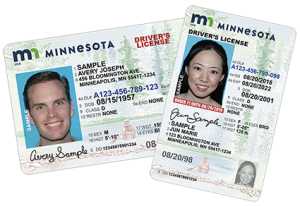So you have a brand new license and a brand new car, and you want to hit the road. Just make sure your car and your finances meet all the legal requirements before you back out of the driveway. Automobile insurance, emissions standards, vehicle registration, and the issuance of driver’s licenses are regulated at the state level. Most states require that drivers maintain a minimum level of auto insurance so that medical and property bills do not go unpaid after an accident, and regulate emissions to keep the air clean. This section provides state-specific links related to these topics, frequently asked questions about vehicle inspections and more.
Suspended/Revoked Licenses
Driving is a privilege, not a right and because of the inherent danger in driving; states hold a lot of control over who is and isn’t granted the privilege. Licenses are commonly revoked for various reasons including speeding, reckless driving, driving without insurance, driving while under the influence of alcohol or drugs (DUI/DWI), or failing to pay a fine, answer a summons, or file an accident report when required. All states also have “implied consent” laws that require motorists to submit to a breathalyzer or similar alcohol test if requested by an officer. Refusing such a request usually results in an automatic license suspension.
Many states use a “point” system where different violations carry a different point value. Accruing too many points in a given time period may result in the suspension or revocation of a license. Typically this means the person can’t drive and must reapply for a license after a period of time has passed.
Some jurisdictions may make suspension of a license one of the outcomes of certain convictions (particularly DUI/DWI offenses) and some states will suspend or revoke a license if the driver owes unpaid child support.
Vehicle Rules
Vehicles must also adhere to certain rules before they are allowed on the road. Failure to maintain a vehicle or unlawful modifications added to an otherwise functioning car can result in a violation that can result in tickets and fines. Standards vary depending on the state. Some states require safety or emissions inspections to ensure compliance with certain standards.
Regardless of whether your state has inspection requirements certain features of your car must be in working condition when you operate it. Some examples include safety features such as seatbelts, turn signals, and headlights. Even if they work some parts of your car can still create liability.
Tinted windows or other cosmetic modifications can result in a ticket. Many states forbid tinting of certain kinds, tinting beyond a specified opacity, and in some cases apply different rules for the tinting of different windows. They may also forbid the installation of shades or other devices that obstruct visibility. Because vehicle restrictions can vary greatly from state-to-state it is best to check your state’s specific requirements when buying or modifying a vehicle to ensure that you comply with all of the requirements for vehicle safety and maintenance in your area.

